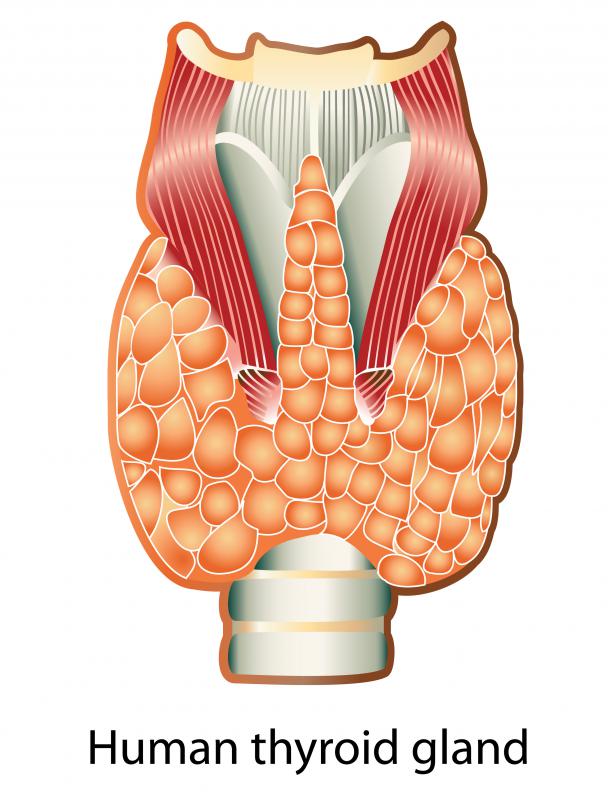At WiseGEEK, we're committed to delivering accurate, trustworthy information. Our expert-authored content is rigorously fact-checked and sourced from credible authorities. Discover how we uphold the highest standards in providing you with reliable knowledge.
What Are the Different Anterior Pituitary Hormones?
At the base of the brain, the pituitary gland secretes hormones which regulate most of the processes occurring in the body. While the anterior, or front, part of the pituitary gland produces seven different hormones, the posterior, or rear, portion produces only two. Anterior pituitary hormones include prolactin, which controls milk production; luteinizing hormone and follicle stimulating hormone, which stimulate the ovaries and testes; and melanocyte stimulating hormone, which is not fully understood. Thyroid stimulating hormone, growth hormone and adrenocorticotrophic hormone are the remaining anterior pituitary hormones. Adrenocorticotrophic hormone stimulates the adrenal glands to produce steroid hormones, growth hormone affects growth and metabolism, and thyroid stimulating hormone controls the production of hormones by the thyroid gland.
The pituitary, or hypophysis, is an example of what is called an endocrine gland, which produces chemical messengers known as hormones. Anterior pituitary hormone production is under the control of another part of the brain, known as the hypothalamus, which lies just above the pituitary gland. The hypothalamus sends its own hormones, which are able to stimulate or inhibit the release of anterior pituitary hormones, directly to the pituitary through a connecting network of blood vessels.

Thyroid stimulating hormone (TSH) acts on the thyroid gland where it causes increased production of the thyroid hormone, thyroxine (T4). Thyroxine is important in homeostasis, which means it regulates vital bodily functions such as temperature, heart rate, blood pressure and metabolism. A pituitary disorder can cause decreased levels of TSH, leading to an underactive thyroid gland with symptoms of tiredness, feeling the cold, dry skin and constipation. Sometimes, the body makes antibodies that bind to TSH receptors, stimulating excess T4 production and causing an overactive thyroid, with symptoms of anxiety, sweating, palpitations and weight loss.

Luteinizing hormone (LH) and follicle stimulating hormone (FSH) are two anterior pituitary hormones which are concerned with reproduction. In women, LH triggers ovulation, where an egg is released from its containing follicle in the ovaries, and both FSH and LH stimulate the follicle to produce hormones known as estrogen and progesterone. LH in men promotes testosterone secretion, and FSH stimulates sperm production. Prolactin (PRL) is concerned with creating milk and acts on cells in the breasts during pregnancy and after birth.

Another of the anterior pituitary hormones, adrenocorticotrophic hormone (ACTH) acts on the adrenal glands causing them to produce cortisol, which helps the body to resist stress and fight inflammation. Cortisol also helps to regulate metabolism, blood pressure, fluid balance and blood sugar levels. Growth hormone (GH) is concerned with growth and repair, and abnormal levels in children can cause stunted growth or over development.
AS FEATURED ON:
AS FEATURED ON:


















Discuss this Article
Post your comments